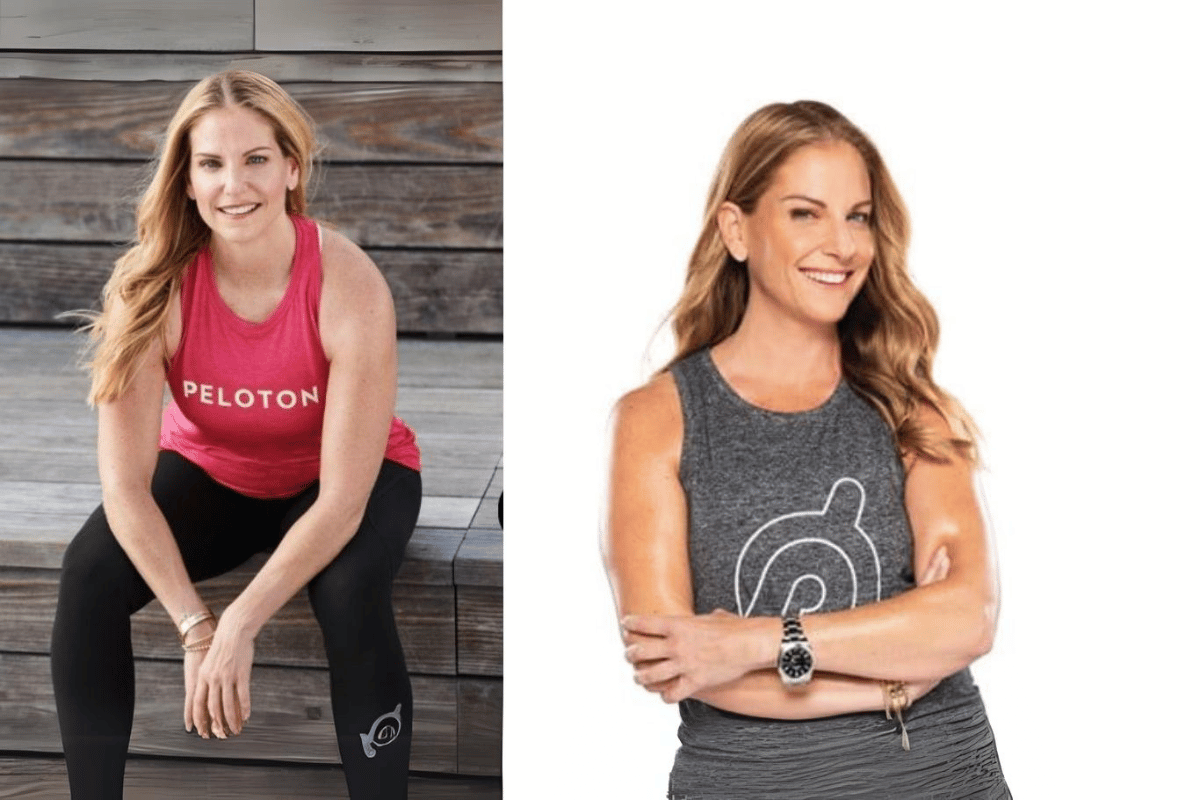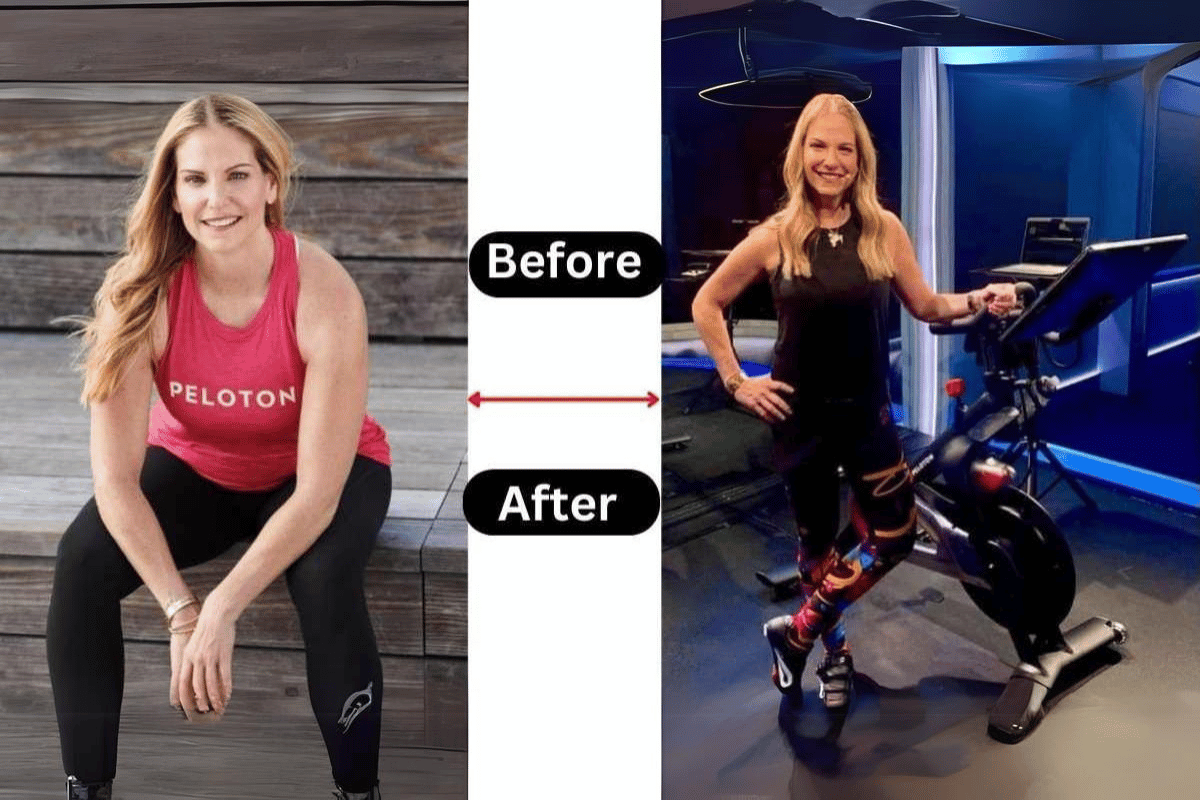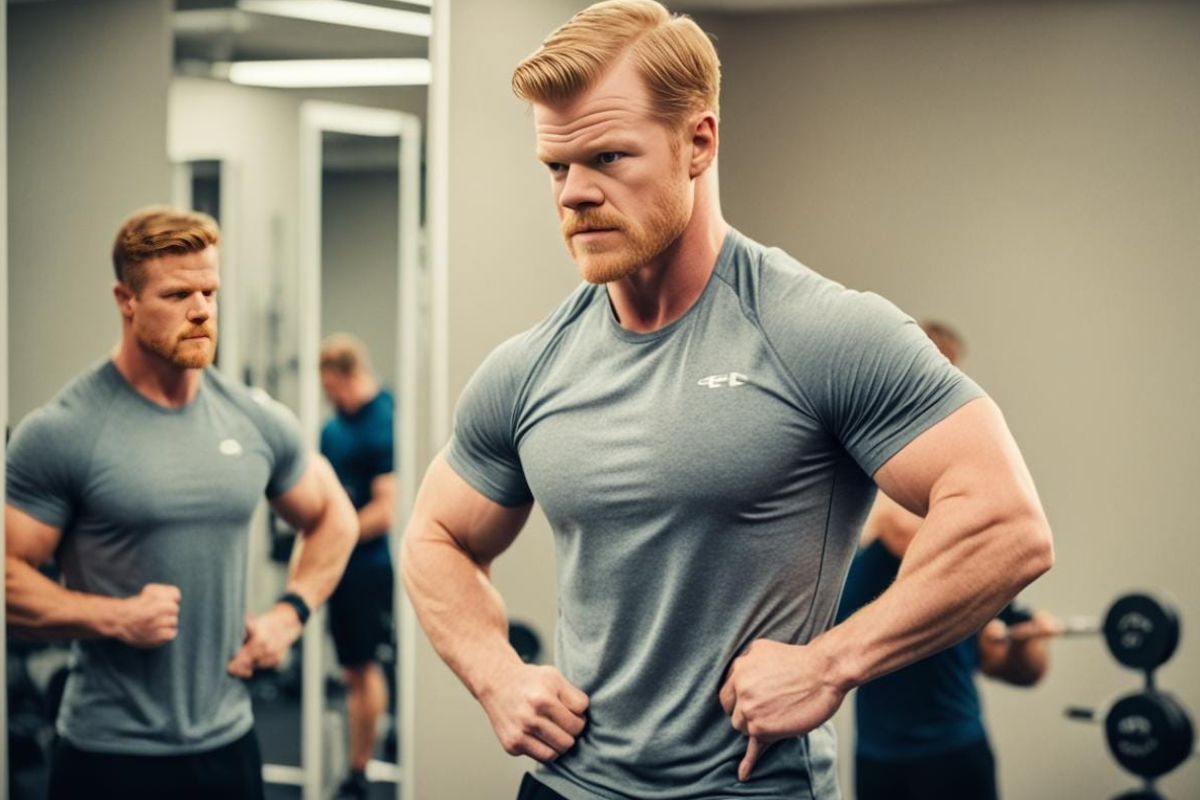Jenn Sherman’s weight loss journey is a testament to the power of dedication and healthy choices. As a prominent fitness instructor and a role model for many, Jenn has successfully transformed her lifestyle by embracing nutritious foods and effective fitness routines. Throughout her journey, she has emphasized the importance of maintaining a balanced diet, particularly during winter when people often face challenges sticking to their health goals.
Nutrition is critical in sustaining a healthy lifestyle, especially during the colder months. Winter can bring about cravings for comfort foods and hinder motivation for physical activity. However, by choosing the right foods, Jenn could stay on track with her weight loss goals. This article will explore seven winter foods that have supported her weight loss journey, providing insights and tips for readers looking to enhance their nutrition during the winter.
Jenn Sherman weight loss
Winter Food #1: Leafy Greens
Incorporating leafy greens into meals is one of the simplest yet most effective ways to boost nutrition, especially during winter. These nutrient-dense vegetables are packed with vitamins, minerals, and antioxidants that can help support overall health while aiding in weight loss. For Jenn Sherman, leafy greens have become a staple in her winter diet, providing a versatile base for various meals.
The benefits of leafy greens extend beyond their nutritional content. They are low in calories and high in fiber, which can help keep you feeling full longer and reduce the likelihood of overeating. Additionally, greens like spinach, kale, and collard greens are rich in vitamins A, C, and K and essential minerals like iron and calcium. This makes them excellent choices for boosting immunity and maintaining energy levels during the colder months.
Jenn often includes leafy greens in her meals by adding them to smoothies, soups, and salads. For an easy recipe, she blends spinach with frozen fruit, Greek yogurt, and almond milk to create a refreshing and nutrient-packed smoothie. Another simple dish she enjoys is sautéed kale with garlic and olive oil, a flavorful side that complements various proteins.
By incorporating leafy greens into her winter meals, Jenn Sherman enhances her nutritional intake and supports her weight loss journey. These greens offer a wealth of health benefits and versatility, making them essential to a balanced winter diet.
Winter Food #2: Seasonal Fruits
Seasonal fruits are an excellent addition to any winter diet, offering a burst of flavor while boosting immunity and energy levels. For Jenn Sherman, incorporating winter fruits into her meals has been a critical strategy in her weight loss journey. Fruits such as oranges, apples, pears, and pomegranates are delicious and packed with essential nutrients, making them perfect for the colder months.
Winter fruits are rich in vitamins, particularly vitamin C, which are vital for supporting the immune system. They also provide fiber, which aids in digestion and helps keep you feeling satisfied. Jenn’s favorite seasonal fruits include blood oranges and apples. Blood oranges are vibrant and loaded with antioxidants, while apples are versatile and easy to incorporate into various dishes.
Jenn recommends a few simple tips to include more fruits in her daily meals. She enjoys adding sliced apples to oatmeal or yogurt for breakfast, creating a hearty and nutritious start to her day. As a snack, she opts for citrus fruits like oranges or clementines, which are easy to peel and eat on the go. Additionally, Jenn sometimes prepares a refreshing fruit salad with a mix of seasonal fruits, drizzled with a bit of honey or a sprinkle of cinnamon for added flavor.
By embracing seasonal fruits, Jenn Sherman enhances her winter diet, supporting her health and weight loss goals. These fruits provide essential nutrients and satisfy sweet cravings more healthily, making them a perfect choice for anyone looking to maintain a balanced diet during the winter months.

Winter Food #3: Whole Grains
Whole grains are vital to a healthy diet, particularly during winter when the body craves sustained energy and warmth. For Jenn Sherman, incorporating whole grains into her meals has been essential in her weight loss journey, as they provide numerous health benefits while helping to keep her satisfied throughout the day.
Whole grains, such as quinoa, brown rice, barley, and oats, are rich in fiber, which aids digestion and helps regulate blood sugar levels. This fiber content promotes feelings of fullness and supports heart health. Additionally, whole grains contain essential nutrients, including B vitamins, iron, and magnesium, crucial for energy production, especially during the colder months when physical activity might decrease.
Jenn integrates whole grains into her meals in various ways. She often opts for oatmeal topped with fresh fruits and nuts for breakfast, creating a nourishing start to her day. Lunchtime might feature a quinoa salad mixed with roasted vegetables and a light vinaigrette, providing a hearty and nutritious meal. For dinner, Jenn enjoys swapping traditional pasta for whole grain options, such as whole wheat or brown rice pasta, to enhance the fiber content of her meals.
By incorporating whole grains into her winter diet, Jenn Sherman effectively supports her weight loss efforts while ensuring she receives the necessary nutrients to stay energized and satisfied. These grains contribute to a balanced diet and offer versatility, making them an excellent choice for anyone looking to improve their nutrition during the winter months.
Winter Food #4: Lean Proteins
In any weight loss journey, incorporating lean proteins is essential for building and repairing muscles while promoting satiety. For Jenn Sherman, prioritizing lean protein sources during the winter has played a significant role in maintaining her fitness and health goals. Lean proteins are lower in fat and rich in essential amino acids that support overall health.
Lean protein sources include chicken breast, turkey, fish, legumes, and low-fat dairy products. These options provide high-quality protein without excess calories, making them perfect for anyone aiming to lose weight while still feeling full. Jenn particularly enjoys grilled chicken and salmon, as they are versatile and easy to prepare.
Jenn often prepares simple yet delicious recipes to incorporate lean proteins into her meals. For instance, she might bake an herb-crusted salmon fillet served alongside a quinoa salad, combining the benefits of protein and whole grains. Another favorite is a turkey chili packed with beans and vegetables, which not only warms her up during the colder months but also provides a hearty meal that satisfies her hunger.
By focusing on lean proteins, Jenn Sherman effectively supports her weight loss goals while ensuring her body gets the nutrition to function optimally. These protein sources are vital in maintaining muscle mass, enhancing metabolism, and keeping energy levels steady, making them an essential part of a balanced winter diet.

Winter Food #5: Healthy Fats
Incorporating healthy fats into your diet is crucial for maintaining a balanced nutrition plan, especially during winter when energy needs may increase. For Jenn Sherman, including healthy fats has been an important aspect of her weight loss journey, providing essential nutrients and enhancing the flavors of her meals.
Healthy fats, such as those found in avocados, nuts, seeds, and olive oil, play a significant role in overall health. They support heart health, improve brain function, and help the body absorb fat-soluble vitamins (A, D, E, and K). Additionally, healthy fats are satiating, which can help prevent overeating and support weight management.
Jenn’s favorite sources of healthy fats include avocados and almonds. She often adds sliced avocado to her salads or whole-grain toast, creating a creamy texture and rich flavor that enhances her meals. Almonds are a go-to snack for Jenn, providing a nutritious option that satisfies her cravings while delivering protein and healthy fats.
Jenn suggests drizzling olive oil over roasted vegetables to incorporate healthy fats into winter meals or using it as a base for salad dressings. Adding a handful of nuts or seeds to smoothies or oatmeal can boost the nutritional profile and create a satisfying crunch.
By including healthy fats in her diet, Jenn Sherman supports her weight loss goals and promotes overall health and well-being. These fats are essential for maintaining energy levels, enhancing flavors, and keeping meals enjoyable and satisfying during the colder months.
Winter Food #6: Warm Soups and Broths
Warm soups and broths are not only comforting during the cold winter months but also provide a range of health benefits that can support a weight loss journey. For Jenn Sherman, incorporating nutritious soups into her diet has been a delightful way to stay hydrated while enjoying flavorful meals. Soups are typically low in calories yet high in volume, making them an excellent option for those looking to manage their weight.
The benefits of soups extend beyond their nutritional content. They can be packed with vegetables, lean proteins, and whole grains, allowing various flavors and textures. Jenn often prepares homemade soups using seasonal ingredients, ensuring she gets the maximum nutritional value. This approach will enable her to control the ingredients and avoid added preservatives usually found in store-bought options.
One of Jenn’s go-to winter soup recipes is a hearty vegetable and lentil soup. She combines a variety of vegetables, such as carrots, celery, and spinach, with lentils for a protein-packed, fiber-rich meal. Another favorite is a chicken broth with added greens and brown rice, which provides warmth and nourishment on chilly days.
To make nutritious homemade soups, Jenn recommends a few tips: start with a flavorful broth as the base, incorporate plenty of vegetables, and consider adding spices for extra flavor. Using a slow cooker can also simplify the process, allowing for easy meal prep.
By including warm soups and broths in her winter diet, Jenn Sherman effectively enhances her weight loss efforts while enjoying comforting and satisfying meals. These dishes provide hydration and essential nutrients that support overall health and wellness during the winter months.

Winter Food #7: Spices and Herbs
Spices and herbs are often overlooked, yet they play a crucial role in enhancing winter meals’ flavor and nutritional profile. For Jenn Sherman, using a variety of spices and herbs has been an integral part of her weight loss journey, allowing her to keep her meals exciting and flavorful without relying on excess calories or unhealthy additives.
The benefits of spices and herbs go beyond taste; many possess unique health properties that can support overall wellness. For instance, turmeric has anti-inflammatory properties, while ginger can aid digestion and boost immunity. Incorporating these ingredients into her cooking makes meals more enjoyable and adds nutritional value.
Jenn enjoys experimenting with different spices to create depth in her dishes. She frequently uses garlic, cumin, and paprika to season roasted vegetables, while basil and oregano are staples in her homemade soups and sauces. These herbs enhance flavor and contribute antioxidants and essential vitamins to her meals.
To start with spices this winter, Jenn suggests trying out a few new blends or individual spices. Adding cinnamon to oatmeal or smoothies can provide warmth and sweetness, while a sprinkle of cayenne pepper can add a kick to soups and stews. Fresh herbs like parsley or cilantro can brighten any dish, adding flavor and nutrition.
By incorporating a variety of spices and herbs into her winter diet, Jenn Sherman effectively supports her weight loss goals while enjoying a diverse range of flavors. These ingredients elevate meals and offer health benefits, making them an essential component of a balanced diet during the colder months.
Conclusion
In conclusion, Jenn Sherman’s weight loss journey is a compelling example of how thoughtful food choices can lead to lasting results, especially during winter. By incorporating seven essential winter foods—leafy greens, seasonal fruits, whole grains, lean proteins, healthy fats, warm soups, and broths, spices, and herbs—she has successfully maintained her health and vitality while pursuing her fitness goals. Each food provides essential nutrients and supports a balanced diet, making them valuable additions to any winter meal plan.
For readers looking to enhance their weight loss efforts, experimenting with these winter foods can offer a fresh approach to nutrition. Embracing various flavors and textures keeps meals enjoyable and ensures that you’re nourishing your body with the right ingredients. As Jenn’s journey illustrates, focusing on nutritious foods can lead to a healthier lifestyle and sustained weight management, even when the temptation for comfort food arises.

FAQ: Jenn Sherman Weight Loss Journey
1. What inspired Jenn Sherman to start her weight loss journey?
Jenn Sherman was motivated to improve her overall health and fitness. She recognized the importance of nutrition and exercise in achieving her goals. Her journey emphasizes the value of making healthy choices, particularly during challenging seasons like winter.
2. What essential winter foods does Jenn Sherman include in her diet?
Jenn incorporates several essential winter foods into her diet, including leafy greens, seasonal fruits, whole grains, lean proteins, healthy fats, warm soups and broths, and various spices and herbs. These foods provide essential nutrients and support her weight loss efforts.
3. How do leafy greens benefit Jenn’s weight loss journey?
Leafy greens are low in calories and high in fiber, which helps Jenn feel full longer. They are also packed with vitamins and minerals that support overall health, making them a vital part of her winter diet.
4. What role do seasonal fruits play in Jenn’s nutrition?
Seasonal fruits are rich in vitamins and antioxidants, helping to boost immunity and energy levels. Jenn enjoys fruits like oranges and apples, which add natural sweetness to her meals while contributing to her weight loss goals.
5. Why are whole grains essential for Jenn’s diet?
Whole grains provide sustained energy and are high in fiber, promoting digestion and satiety. Jenn includes options like quinoa and brown rice to ensure she has the necessary power for her active lifestyle.
6. How does Jenn incorporate lean proteins into her meals?
Jenn focuses on lean protein sources such as chicken, turkey, and legumes. These proteins support muscle maintenance and repair while keeping her meals satisfying and nutritious.
7. What are some examples of healthy fats that Jenn includes in her diet?
Jenn enjoys healthy fats from avocados, nuts, and olive oil. These fats provide essential nutrients and help satisfy her, which is crucial for her weight loss journey.
8. How do warm soups and broths fit into Jenn’s winter diet?
Warm soups and broths offer comfort and hydration during the colder months. Jenn often prepares homemade soups rich in vegetables and proteins, which are a nourishing option that supports her health and weight management.
9. How does Jenn use spices and herbs in her cooking?
Jenn incorporates a variety of spices and herbs to enhance the flavor of her meals without adding extra calories. Using ingredients like garlic, ginger, and herbs makes her dishes more enjoyable and adds health benefits.
10. What can readers learn from Jenn Sherman’s weight loss journey?
Readers can learn that embracing various nutritious foods, staying consistent with healthy eating habits, and enjoying cooking are vital to achieving and maintaining weight loss. Jenn’s journey highlights the importance of nutrition in overall health and fitness.




















































